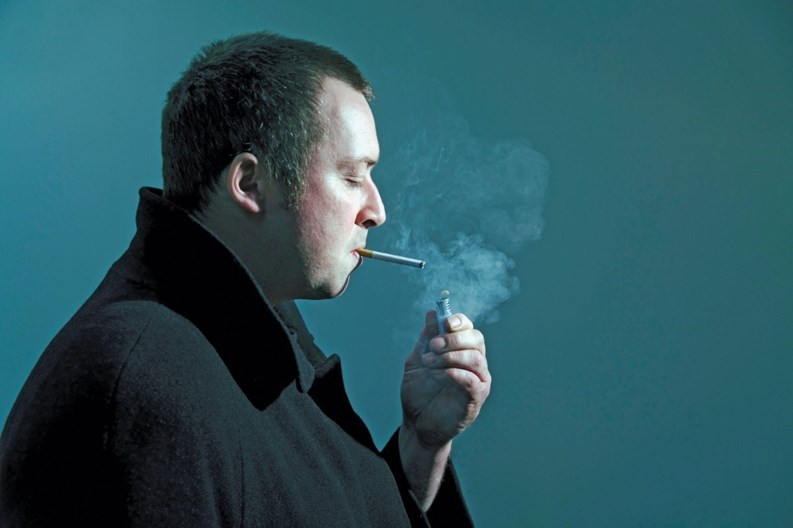The late 1990s saw a surge of nationwide smoking restrictions put into effect. State by state, smoking ban legislation was proposed, put to a vote and passed into law. No public dwelling seemed untouched, including the workplace, shops, theaters, favorite restaurants and bars.
Of late, smoking bans have targeted an area few thought they would – private homes, specifically condominium units. Unlike previous bans, no government intervention is being sought to secure smoke-free condominiums. Community associations are weighing the legal, moral and economic repercussions of such a decision and sometimes choosing a self-enacted smoking ban.
Questions seem to abound. Is it morally right to impose restrictions on neighbors’ and friends’ private residences? How will such decisions impact the condominium community’s cohesiveness? Will placing restrictions on units prove to be an economically sound idea, and how will it affect the resale value of units? And most important, is it legal and constitutional?
Is It Legal?
Most condominium owners and associations are unclear as to what is legally within their rights in instituting smoking restrictions. Confusion comes into play due in part to most state statutes giving associations virtually free rein on common areas but less ability to infringe or place restrictions on private units.
So what is the legality of placing smoking bans on private units? Simply put, “It is completely legal,” states Seth Emmer, a partner at the law firm Marcus, Errico, Emmer & Brooks, PC, in Braintree, Massachusetts. “The process would typically not start with the board but with the owners themselves. Unit owners would need to propose an amendment [banning smoking] to the master deed,” explains Emmer. “A proposed amendment would be drafted and then voted on by the community.”
A majority vote, which is defined by a condominium’s bylaws and differs by association, would be needed to pass the amendment. The process itself is a simple one, but how smoothly the process moves along is dependent on the community itself and how strongly owners might feel about such an amendment.
“It can be an easy process,” states Christopher Banthin, director and senior staff attorney for the Public Health Advocacy Institute (PHAI) in Boston. “The reason that it is easy is due in part because the law bows and favors the community wishes.” A 2008 survey conducted by PHAI of selected metropolitan areas in Massachusetts found that 16.7 percent of condominiums in those areas had banned smoking everywhere in the condo, including inside units. Most of the bans, notes Banthin, occurred in smaller condominiums where majority votes for bans tend to run into little opposition.
And as Emmer points out, despite the many fundamental rights protected under the U.S. Constitution, there is no constitutional right protecting smokers. Emmer adds, “There is also a substantial amount of medical evidence supporting the argument for non-smoking bans.”
Complicating the issue for condominiums is the idea that those who don’t ban smoking could be the target of future legal action, as was seen in Boston this past winter. Alyssa Burrage sued her two neighbors, her condominium association and her real estate company over second-hand smoke in a condominium she had just purchased.
The suit alleged that Burrage was misled when purchasing her condominium about the origin of a cigarette smell in the unit. Her realtor allegedly attributed the smell to the previous owner. But after moving in, she discovered that the smell was coming from her neighbors living in the condo below hers. The condo association and neighbors failed to fix the problem to her satisfaction, causing her asthma to flare up and forcing her to move out. Burrage settled out of court with her neighbors and the association, but the case went to trial against the real estate company. Eventually, the court ruled in favor of the real estate company.
The case, which generated a fair amount of publicity, brought to light not only the health issues of second-hand smoke but also the repercussions of associations not heeding the health concerns of owners. To date, no smoking cases have gone to trial against associations and yielded any monetary gains for plaintiffs, but such cases as this open the door for possible new suits springing up.
But Stephen Helfer, a smokers’ rights advocate from Boston, says smoking bans can open a legal “Pandora’s box” for associations.
“This issue opens a whole host of problems for associations,” states Helfer. “If bans are placed on owners for smoking, what about the individual who has pet allergies, or chemical sensitivities? It empowers everyone to put up a fight for any second-hand scent.”
Is it Economically Sound?
Many condominium communities are reluctant to move towards placing smoke-free policies on units due to a fear about the unknown. Ill-equipped with a comfortable sense of the legal leg on which they have to stand, communities fear counter lawsuits and potentially plummeting resale value.
However, a 2008 study points to a different conclusion. In a survey conducted by The Public Health Advocacy Institute (underwritten by the Massachusetts State Department of Public Health), 81% of prospective residents were immediately less interested in an apartment or condominium unit if they smelled tobacco smoke when looking at it. The study of more than 1,300 apartment and condo residents in 11 Massachusetts cities and towns also found that 69% of those interviewed were interested in knowing upfront if a property listing was in an apartment or condominium unit located in a smoke-free building.
Surprisingly, 43% of individuals surveyed were willing to pay more to live in a smoke-free building.“Virtually every survey done has shown that there has been a positive or neutral effect when an apartment or condominium has gone smoke-free,” states Jim Bergman, attorney and director of the Smoke-Free Environments Law Project located in Ann Arbor, Michigan. “No research has shown a negative impact.
“With (rental) apartments it is a virtual tidal wave; at this point daily we are seeing substantial numbers of rental units going smoke-free,” says Bergman. However, Berman notes that“condos are much slower across the board and across the country. Owners are still afraid that by making this change they will impact resale value.”
The monetary effects to rehab an apartment of a smoker can also be costly. “It can run from $500 to $6,000, $8,000, even as high as $10,000 to rehab after a smoker,” states Bergman. Costs can include floor-to-ceiling washing and painting of the walls, fan removal and carpet cleaning or removal.
Is it Moral?
When it comes to smoking bans, there is no middle ground – either people are for them or against them. Typically the battle line is drawn with an individual’s preference to take a drag of a cigarette or not. However, whether you smoke or not, most people agree that their home is their private sanctuary. No one wants to be told what they can and can’t do in the privacy of their own four walls.
But as Banthin points out, “A smoker’s rights stop at their neighbor’s nose. Once actions adversely affect someone, there is an issue.” Bergman agrees, citing the old swing-the-fist argument. “I have the right to swing my arms back and forth, but when I make contact with someone, my right to do that ends.” Bergman states, “It is a moral issue. Do I morally have a right to inflict health problems on my neighbor?”
Smoking rights advocate Helfer believes that discussions on smoking restrictions in condominiums are merely the next step in the anti-smoking movement’s agenda, a movement that has only built over time and become extremely powerful. Helfer believes that not only is it morally wrong to place smoking restrictions on private homes, but also points to the dehumanizing aspect smoking bans place on the community itself. “Autonomy is as much an indicator and contributor to good health as exercise and eating right,” states Helfer. “Bans impact our spirit and health.”
Banthin and Bergman disagree with Helfer. “I understand the argument, but it does not hold up,” states Bergman. “No one is saying, ‘Stop smoking.’ but we are saying, ‘Smoke somewhere else.’” Banthin believes the issue of smoking restrictions is strongly rooted in what is morally right but he equally reaffirms the health issues. “Smoking is a Class A carcinogen. There is no way to stop smoke from traveling [between units] and there are no known safe levels,” he says.
Considering that only about 15% to 20% of the adult U.S. population smoke, this leaves the vast majority of the population non-smokers. It is no surprise that smoking bans are moving closer and closer to home.
Currently in New England the demand for smoke-free condominiums outweighs the supply. However, many experts foresee within five to ten years an ample amount of non-smoking options to choose from. “With 80% of the population not smoking, I can imagine that the inventory of smoke-free buildings moves towards that number and then will eventually level off,” predicts Banthin.
Legally, economically and morally, associations and owners will need to explore whether smoking bans will fit the needs and landscape of their own unique community. In the end it is the community as a whole that has the right to place, or reject, smoking restrictions.
Hillary Pember is a freelance writer and frequent contributor to New England Condominium magazine.







Leave a Comment